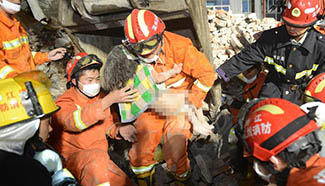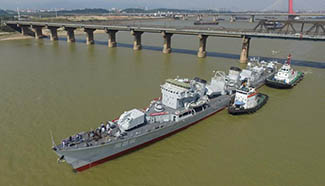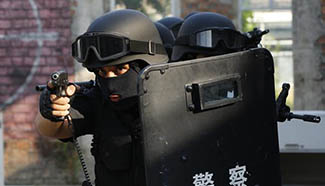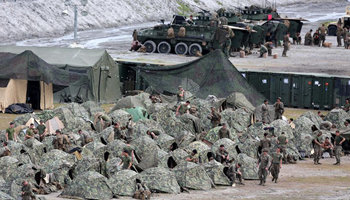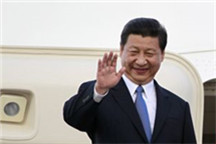by Fuad Rajeh
SANAA, Oct. 10 (Xinhua) -- Many in Yemen suspect that the U.S. was involved in a Saudi-led coalition airstrike that killed more than 140 people and wounded hundreds others at a funeral on Saturday.
The U.S. has been providing support to the coalition's bombing campaign in Yemen.
"The U.S. is the main provider of intelligence data to the coalition, which means the attack might be an intelligence data mistake," Hasan Al-Warith, a political writer and analyst, said.
"Above that, the massacre reminded us of similar U.S. raids in Iraq and Afghanistan in the past, which means the U.S. might be directly involved in it," he said.
Some observers argued that the U.S. misled the Saudi-led coalition as relations between Washington and Riyadh continue to sour.
Ahmed Al-Jabr, a political analyst, said the U.S. is facing growing pressure over its support for the war in Yemen.
Others say the U.S. has been playing a self-contradictory role in Yemen since Houthi rebels seized power in late 2014.
Nabil Albukiri, a political analyst, said the U.S. appears to be on the coalition's side but many events show Washington is helping the Houthi-Saleh alliance as well.
He was referring to former president Ali Abdullah Saleh, who supports Houthi efforts against the internationally recognized government of President Abd-Rabbu Mansour Hadi.
"The U.S. is elusive. Its role in Yemen comes within a shift in its policy in favor of Iran," Albukiri said.
Fuad Alsalahi, a political sociology professor at Sanaa University, said the U.S. "chaos projects" are very obvious particularly in the Middle East.
"One of the U.S. tactics is to support minorities. It does its best to bring a minority to power or create minorities in order to intervene in some countries," Alsalahi said. "That is why it is accused of involvement in violence more than working for peace."
The Saudi-led coalition launched a military air campaign against Houthis and Saleh's forces on March 26, 2015, to restore Hadi to power and recapture the capital.
The coalition's airstrikes and ground battles have since killed over 10,000 Yemenis, mostly children and women, injuring around 35,000 others and displacing 3 million others, according to United Nations reports.

